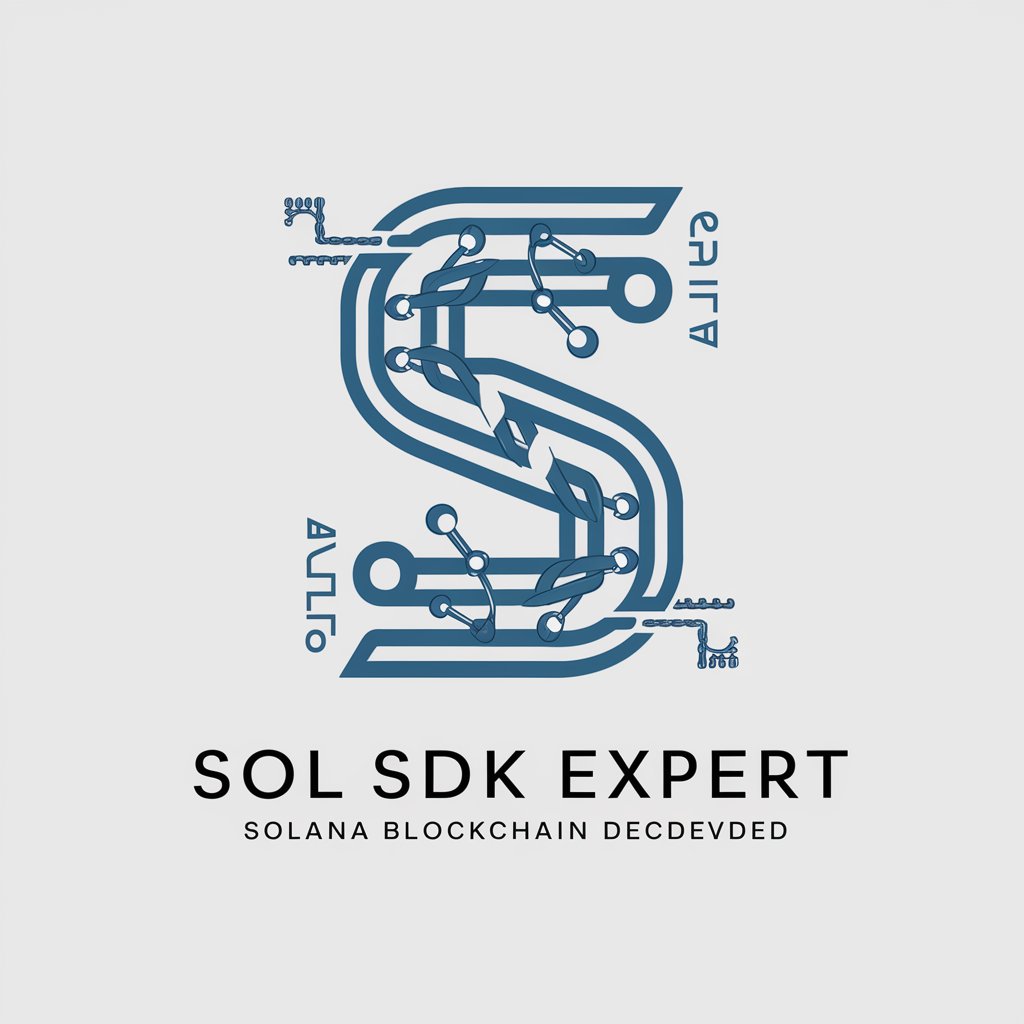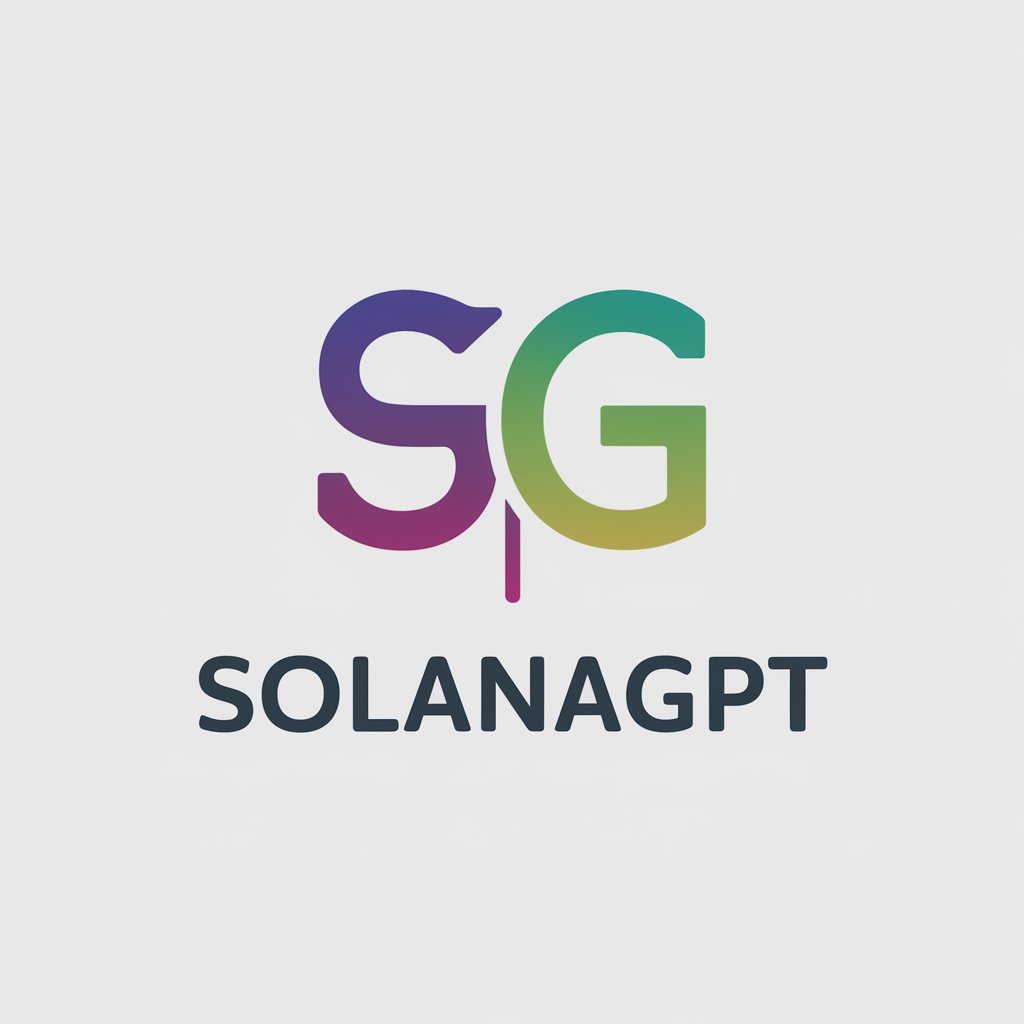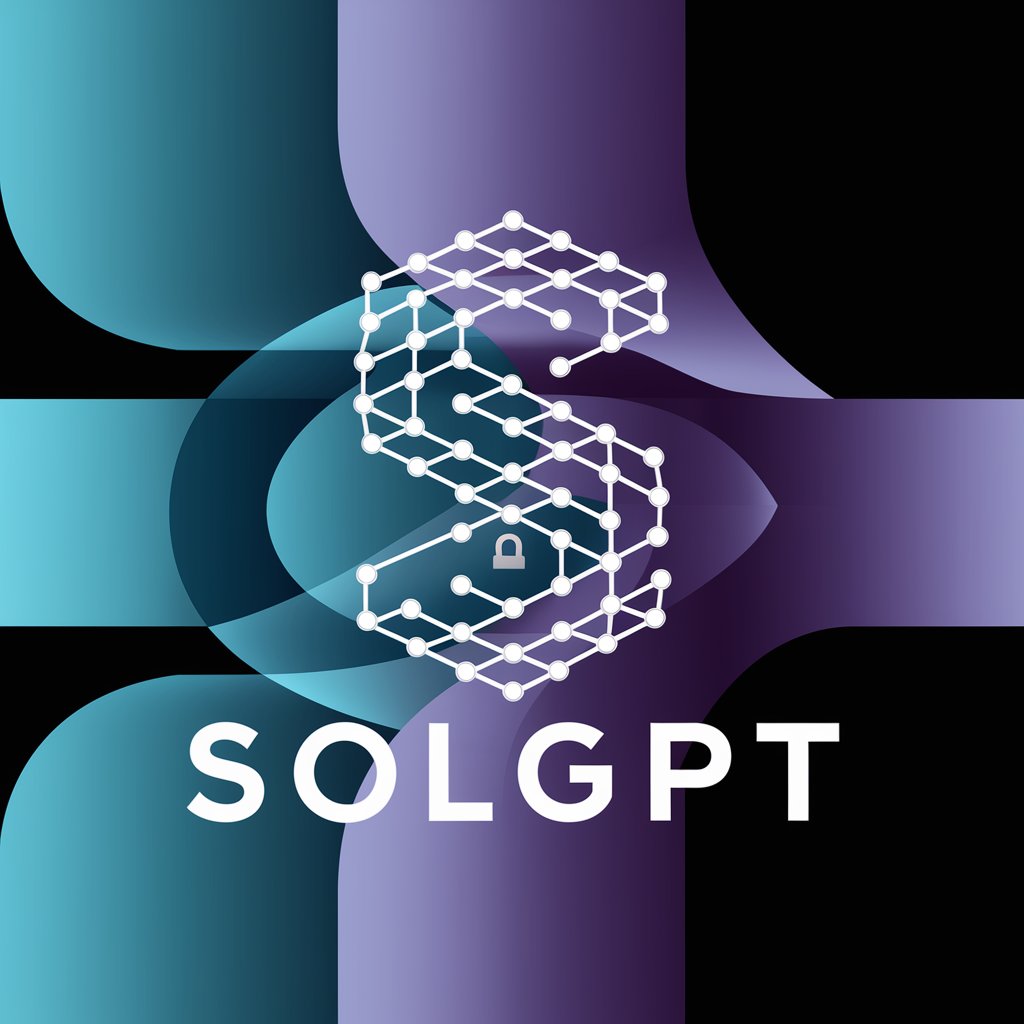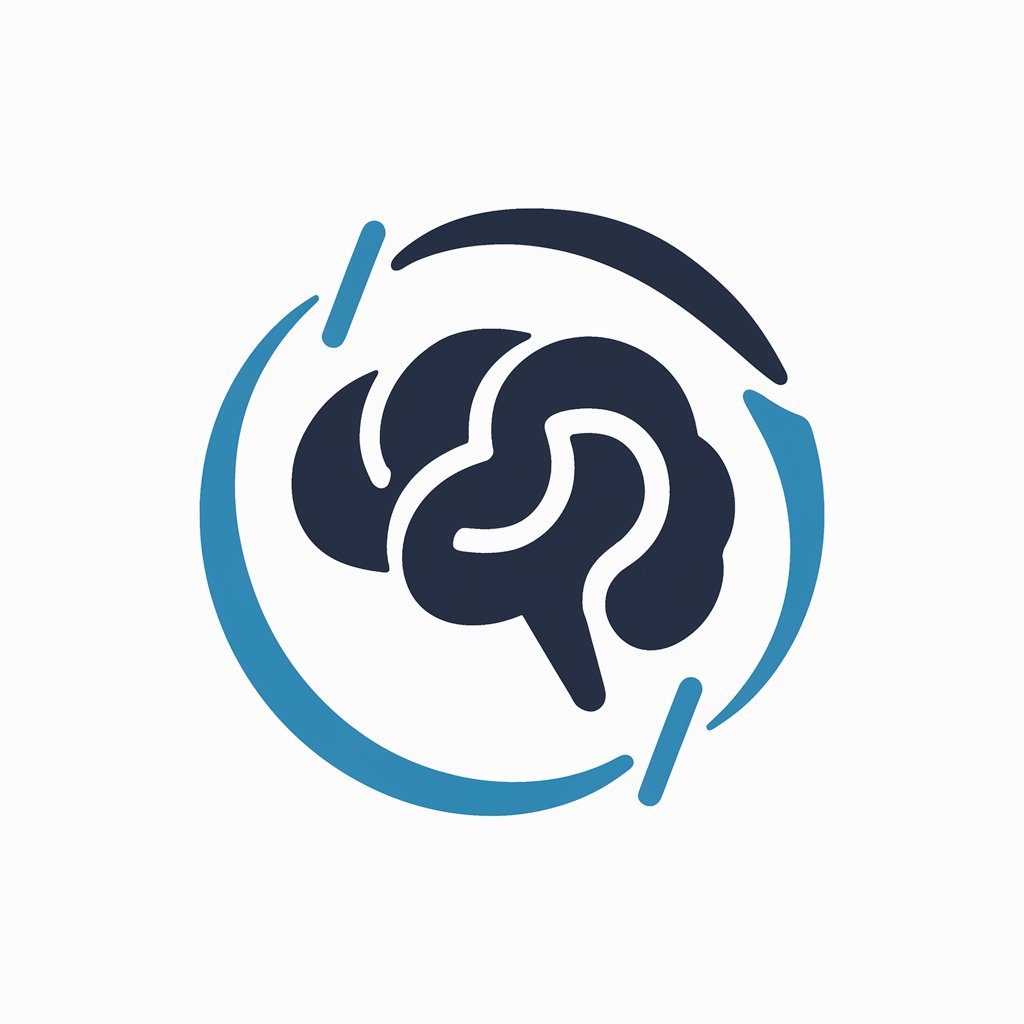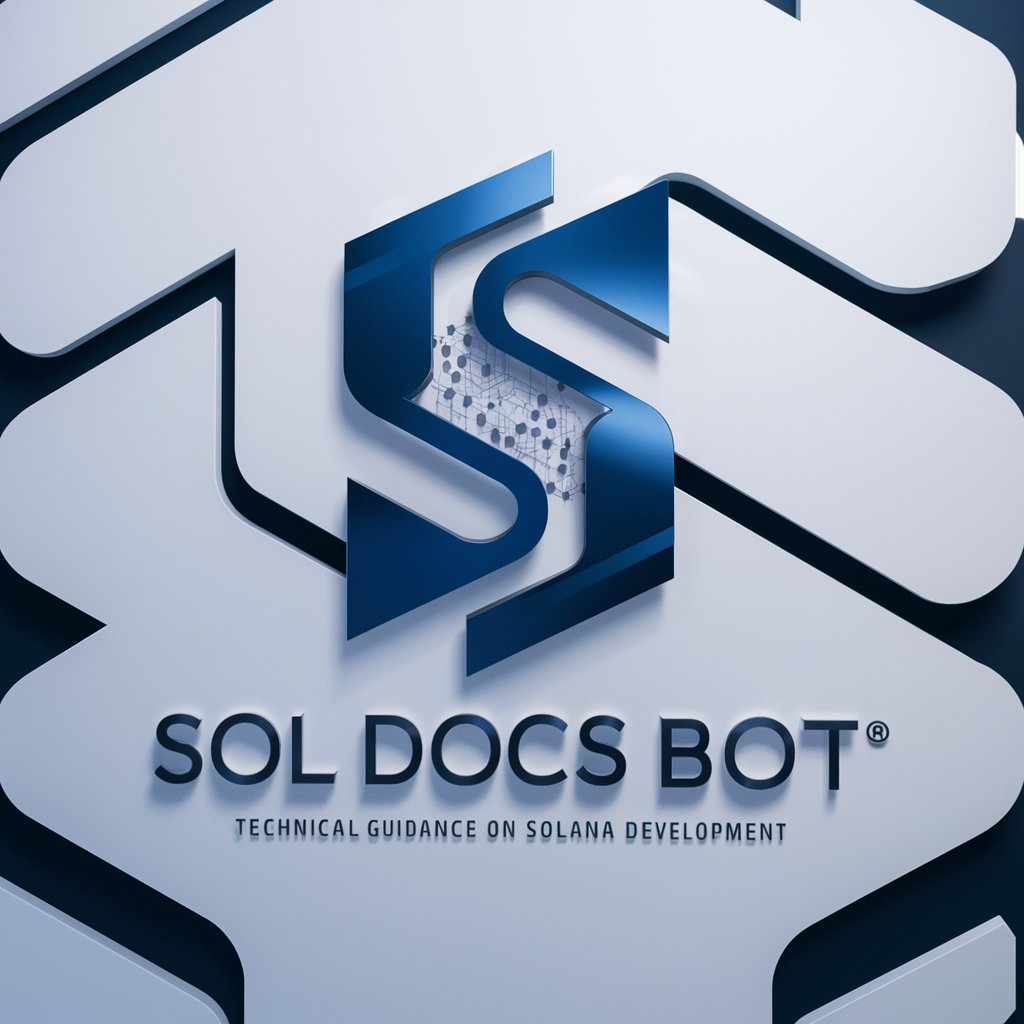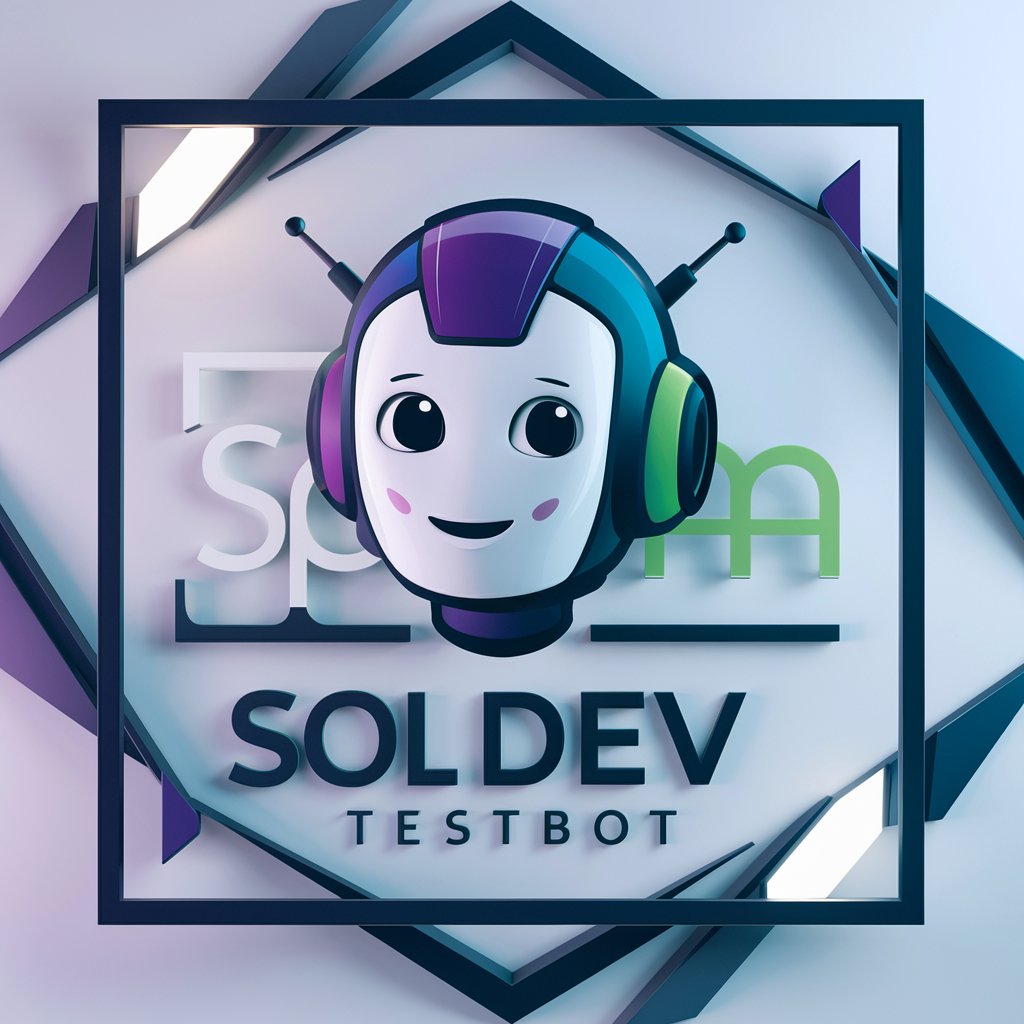
Solanaアプリ開発 - Solana Development Guide
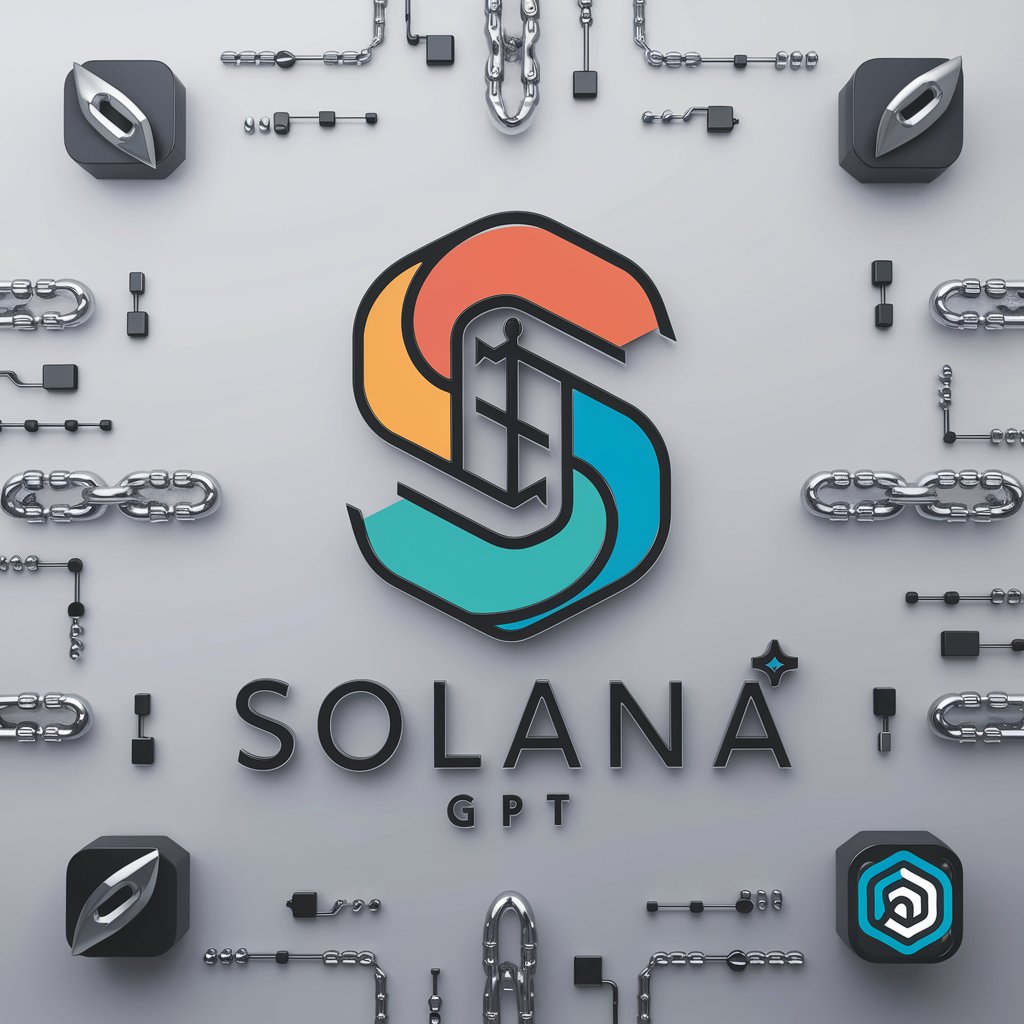
Welcome to Solanaアプリ開発 GPT, your go-to for Solana blockchain insights.
Empowering innovation with AI-driven Solana development
Explain the basic features of the Solana blockchain.
Provide examples of successful Solana app development.
Discuss the process of developing a wallet on Solana.
Describe the unique characteristics of Solana's blockchain architecture.
Get Embed Code
Introduction to Solana App Development
Solana app development encompasses creating decentralized applications (dApps) on the Solana blockchain platform, known for its high throughput and low transaction costs. The design purpose of Solana app development is to leverage Solana's unique architecture, such as its Proof of History (PoH) consensus mechanism and the Sealevel runtime for parallel processing, to build scalable and efficient dApps. Examples of applications include decentralized finance (DeFi) platforms, non-fungible token (NFT) marketplaces, and decentralized exchanges (DEXs). For instance, a DeFi platform on Solana can handle thousands of transactions per second with minimal fees, making it accessible for a wide range of financial activities from lending and borrowing to complex derivative trading. Powered by ChatGPT-4o。

Main Functions of Solana App Development
Smart Contract Deployment
Example
Automated lending platforms
Scenario
Developers can create smart contracts to execute automated lending and borrowing terms. For example, a dApp might enable users to lend out their digital assets at predetermined interest rates, with smart contracts automatically managing repayments and collateral.
Token Creation
Example
Custom cryptocurrencies and NFTs
Scenario
Solana app development allows for the creation of both fungible and non-fungible tokens. A scenario could involve an artist launching a series of unique digital artworks as NFTs, tradable on Solana-based marketplaces with high efficiency and low transaction costs.
Decentralized Exchange (DEX) Development
Example
Peer-to-peer trading platforms
Scenario
DEXs on Solana enable users to trade tokens directly with one another, without intermediaries. A DEX might offer features like liquidity pools and yield farming, allowing users to swap assets and earn rewards, leveraging Solana's fast and cheap transactions.
Ideal Users of Solana App Development Services
Blockchain Developers
Developers looking to build high-performance dApps with low transaction fees will find Solana's environment ideal. Its scalability suits applications needing high throughput, like social media dApps or gaming platforms.
Entrepreneurs in the Crypto Space
Startups and entrepreneurs aiming to launch innovative crypto projects, such as NFT marketplaces or DeFi platforms, can leverage Solana's speed and cost-effectiveness to offer competitive services.
Financial Institutions
Banks and fintech companies interested in blockchain technology for faster and cheaper cross-border transactions, tokenization of assets, or creating digital currencies might find Solana's capabilities beneficial.

How to Use Solana App Development
Start with YesChat.ai
Begin your journey at yeschat.ai for a hassle-free trial that requires no login or subscription to ChatGPT Plus.
Understand Solana's Ecosystem
Familiarize yourself with Solana's blockchain architecture, including its high-throughput capabilities and low transaction fees, to effectively harness its potential for your application.
Learn Solana Programming
Acquire knowledge in Rust or C, the primary programming languages for Solana smart contracts, and explore the Anchor framework for a more streamlined development process.
Design Your Application
Define your application's functionality and user interface, considering Solana's features like fast block times and decentralized finance (DeFi) capabilities to enhance user experience.
Test and Deploy
Utilize the Solana development tools for testing your application. Leverage the Solana Program Library (SPL) for deploying your app efficiently on the blockchain.
Try other advanced and practical GPTs
アイコン作成アプリ
Craft Unique Icons with AI
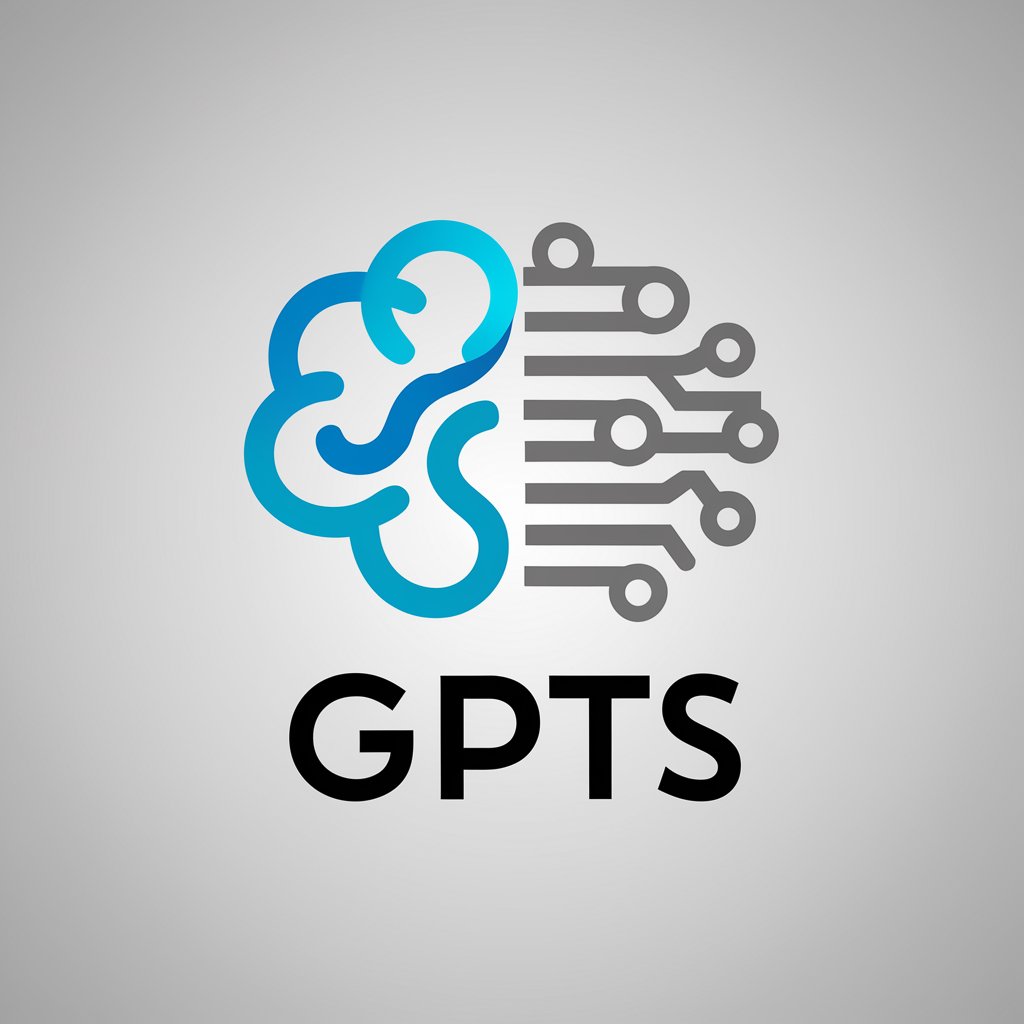
Kindle章立てアプリ
Craft perfect chapters with AI precision

中学生宿題お助けアプリ
Empowering Your Study with AI
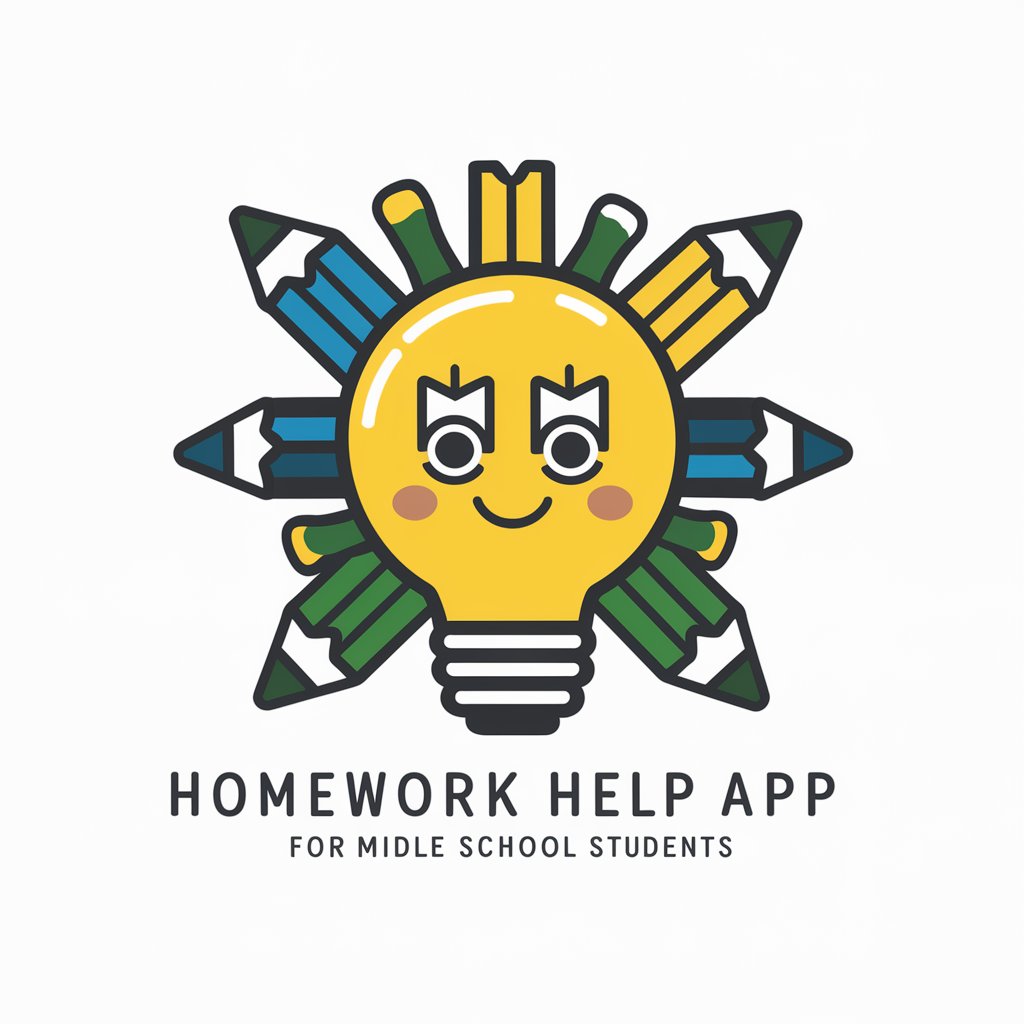
IOSアプリ専門家のアップルくん
AI-driven iOS development assistant

小学校学校定お助けアプリ
Empowering Education with AI
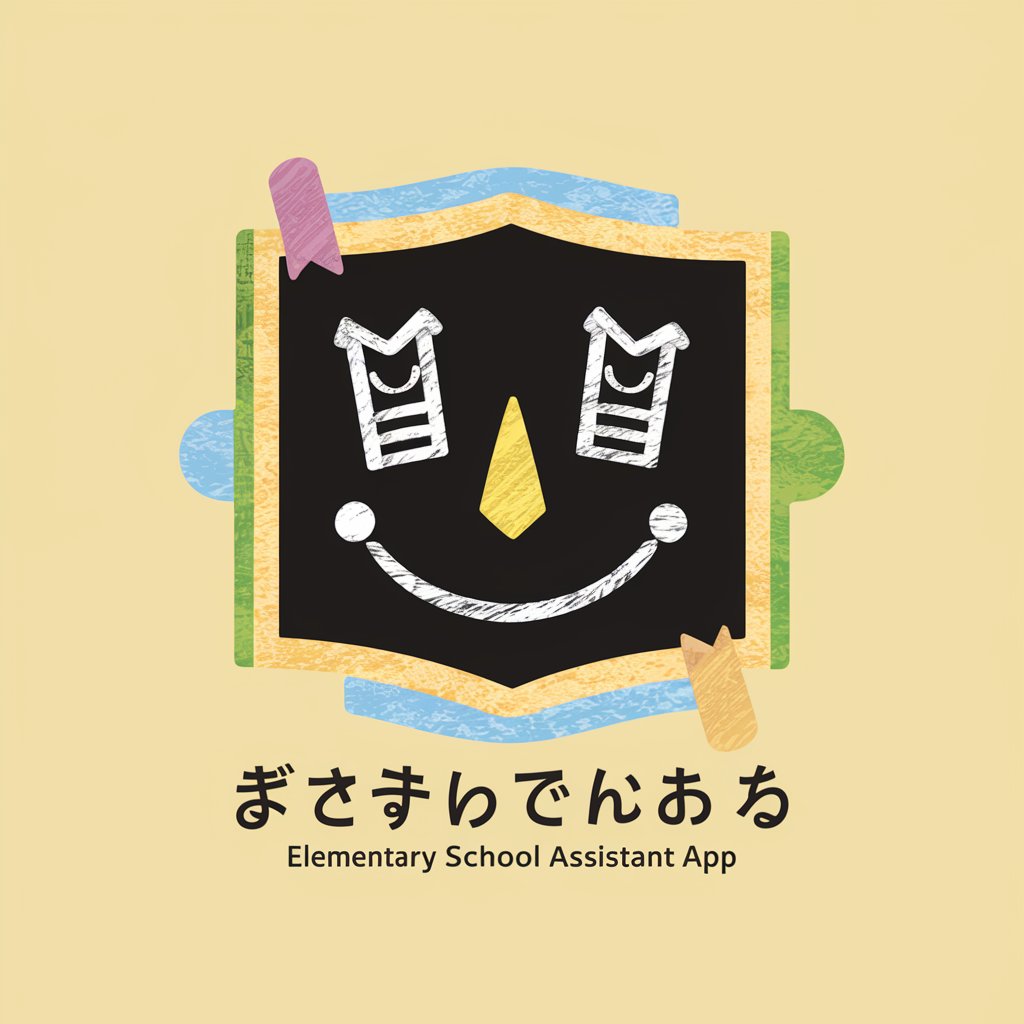
長い文章を要約するアプリ
AI-powered, precise summary generation
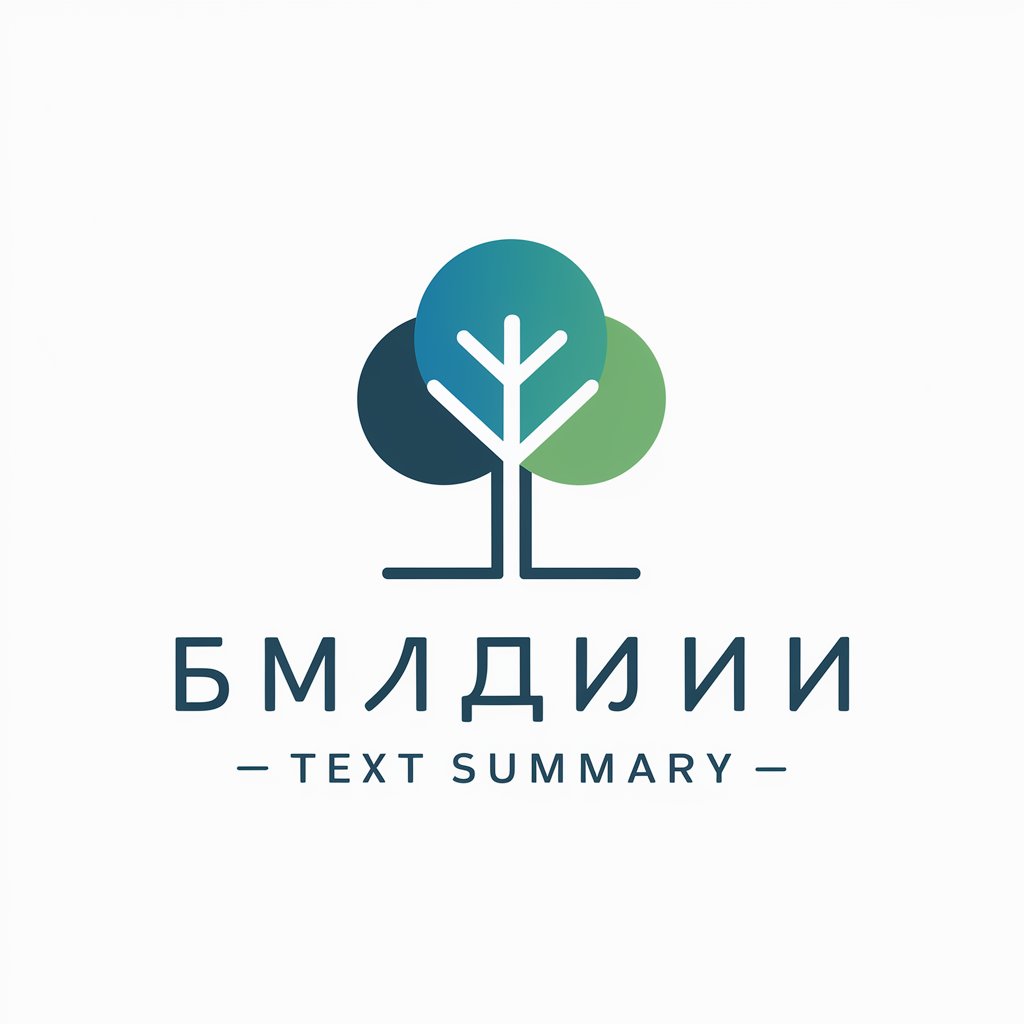
口コミ返信アプリ
Transforming customer feedback into growth opportunities.
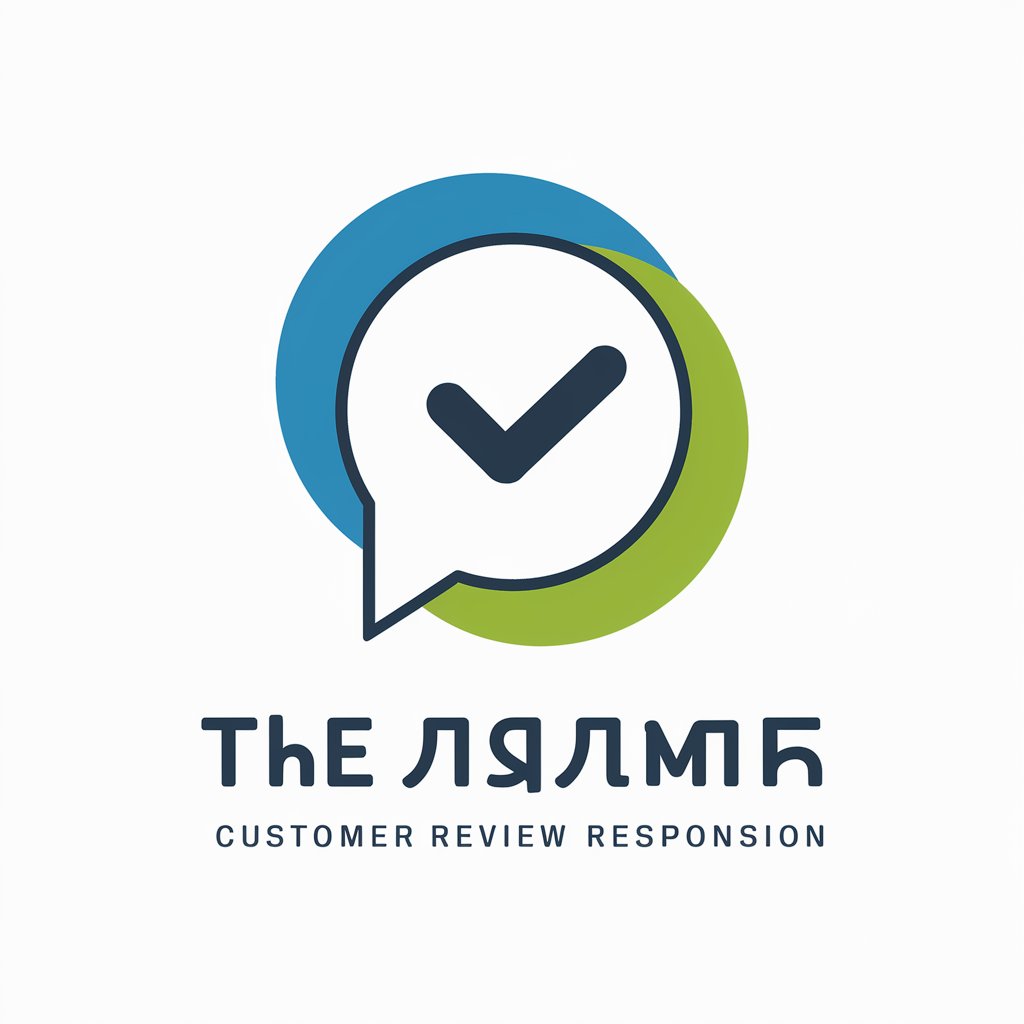
Mobilecut
Edit Smarter, Not Harder with AI

商业洞察仪
Empowering Decisions with AI Insights
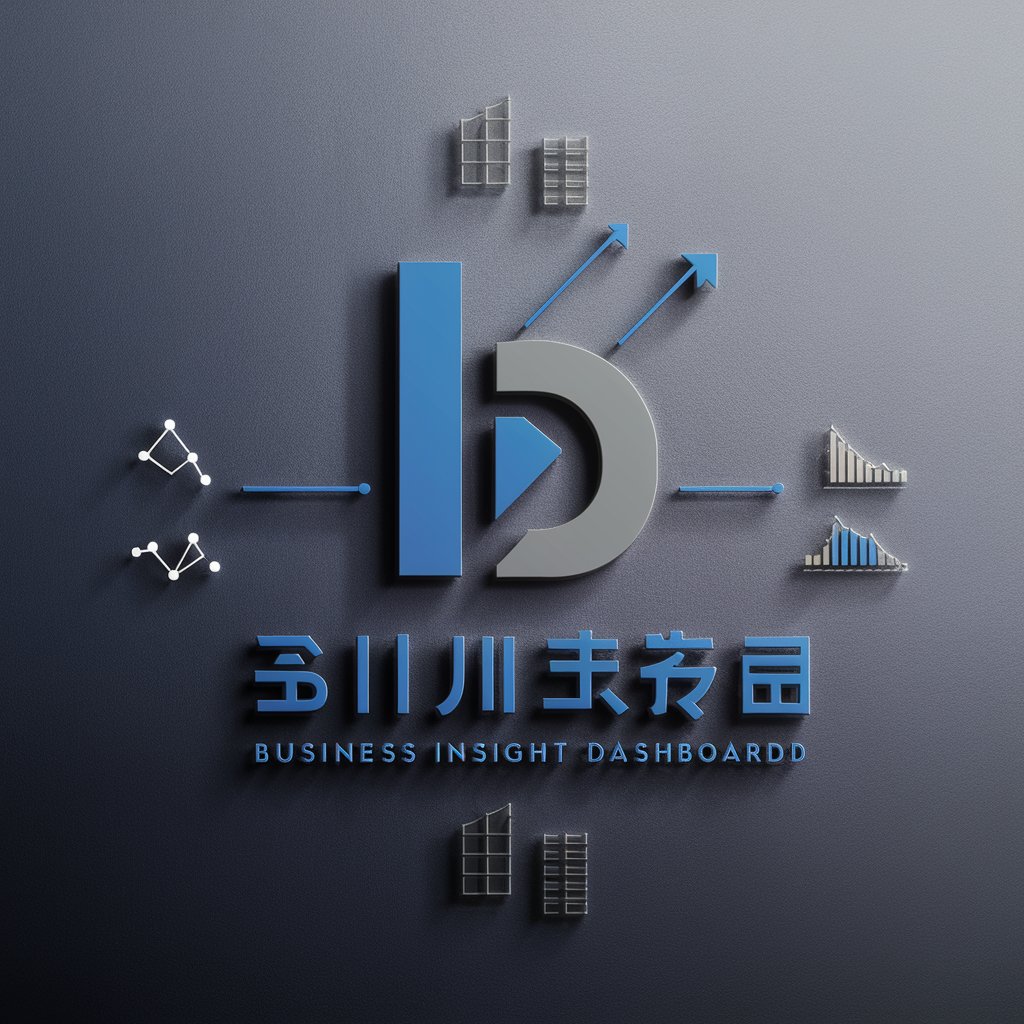
ひとしパイセン
Empowering Creativity with AI

資金調達ができる事業計画書作成サポート
Craft Winning Plans with AI Insight
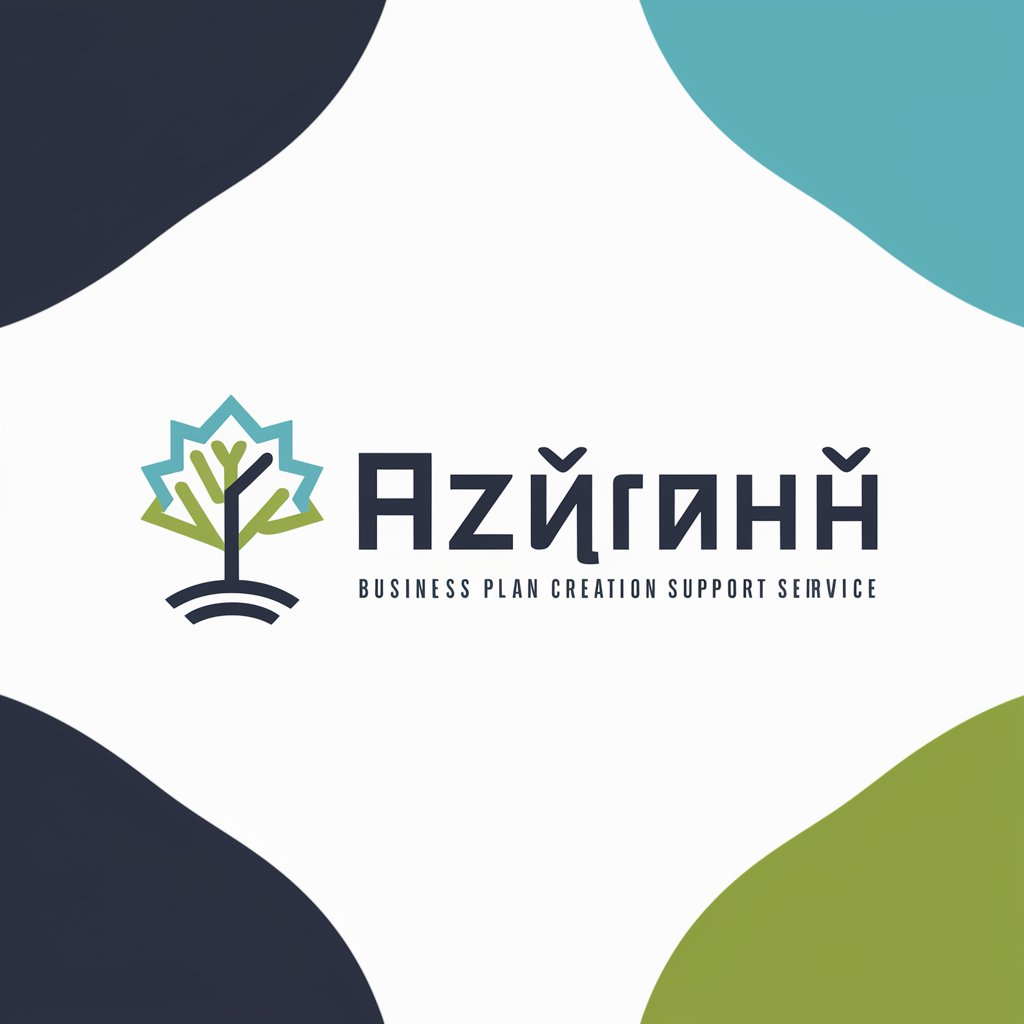
画像編集アシスタント(Image Editing Assistant)
Transform images effortlessly with AI
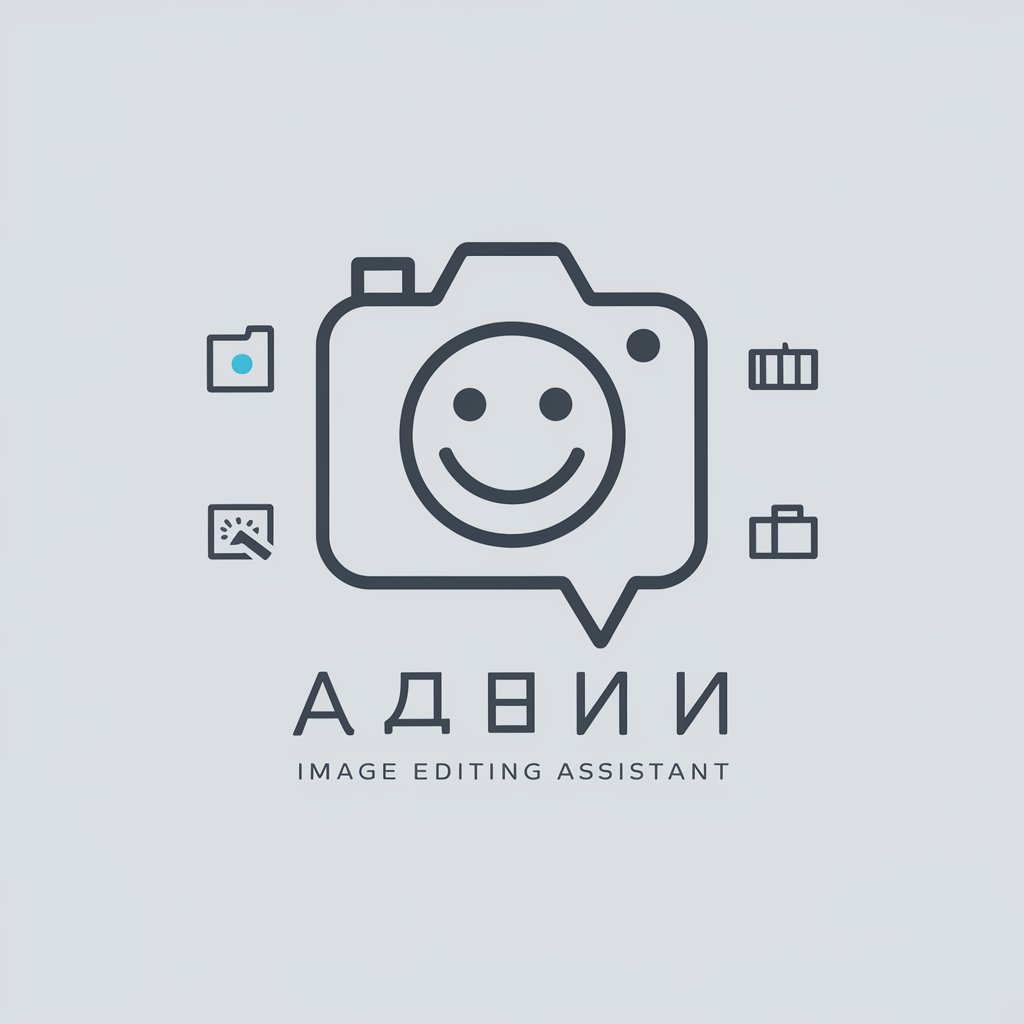
FAQs on Solana App Development
What programming languages are used in Solana app development?
Solana app development primarily utilizes Rust for smart contract development and JavaScript for client-side applications, leveraging frameworks like Anchor for Rust to simplify the development process.
How does Solana's performance benefit app development?
Solana's high throughput and low transaction costs make it ideal for developing scalable dApps that require fast and efficient transactions, enhancing the user experience for applications needing real-time updates.
Can I integrate existing web applications with Solana?
Yes, existing web applications can integrate with Solana through its Web3.js library, allowing for seamless blockchain functionality addition, including transactions and wallet management.
What are common use cases for Solana-based applications?
Common use cases include decentralized finance (DeFi) platforms, NFT marketplaces, gaming applications, and decentralized autonomous organizations (DAOs), leveraging Solana's fast and low-cost transactions.
What are best practices for securing Solana applications?
Best practices include thorough testing, leveraging Solana's program library for security patterns, employing smart contract audits, and educating users on secure wallet management practices.
